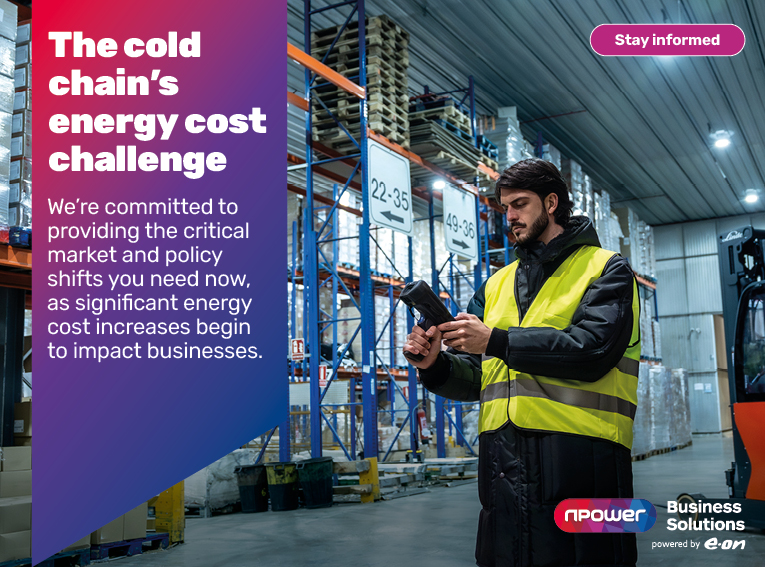Paris, France: The shortage of drivers is the greatest challenge faced by fleet managers according to a new white paper by Frost & Sullivan that interviewed fleet managers in Europe about the challenges they are currently facing.
Driving Forces – Challenges and Opportunities in the European Road Transport Sector, prepared by Frost & Sullivan for on behalf of Edenred (a payment service provider) and Union Tank Eckstein, (a fuel card provider) estimates 100,000 additional professional drivers are now needed to meet the needs of companies – and the trend is rising.
Carsten Bettermann, chief executive, Union Tank, says: “The recruitment and long-term retention of qualified professional drivers is critical for fleet managers. The aim here is not just to achieve optimum fleet utilisation, but also to increase efficiency. After all, a well-trained driver can save 10 to 20 percent in fuel.” To achieve this, the industry must offer competitive salary packages that include social benefits as well as attractive incentive programmes for the drivers.
The complexity of cost management is another challenge. Every day, fleet managers deal with a multitude of cost drivers, which vary based on fleet size, journey time, wage level and taxes. Driver salary usually makes up the majority of total costs (30 to 34%), closely followed by fuel (25 to 30%), vehicle management and maintenance (20%), and toll costs (eight to twelve percent).
Forwarding companies have various options at their disposal for reducing costs: fuel cards enable price savings at the pump, simplify invoicing processes and also offer numerous control functions. A tax refund service and interoperable toll solutions such as UTA One also increase profitability and allow drivers to focus on their main task. Furthermore, innovative telematics solutions, already in use in 37% of HGVs in Europe, are an effective cost-cutting tool.
“Optimum load utilisation and avoiding empty runs, which for European for-warding agents amount to some 25 percent of runs due to the asymmetrical flow of goods, also open up potential savings,” Bettermann says. “Digitisation offers entirely new pos-sibilities, which will be added to the established solutions in the coming years.”
Fleet management and the purchase and maintenance of vehicles also require considerable investment. Fleet managers are always looking for ways to optimise operations to reduce the financial burden in the long term. Here they have to find the right balance between purchase, lease and rental models. Since HGV tractor units alone are very cost-intensive, leasing is gaining in importance when it comes to easing the strain on companies’ liquidity. In Europe, this form of financing now accounts for 70 percent of all new registrations. Vehicle maintenance is also a key variable here – especially in countries such as Romania, where the average vehicle is 15 years old, twice as old as in France. Here, anticipatory maintenance, where all vehicle data are actively used to prevent malfunctions and breakdowns, can deliver considerable savings. “The same is true for alternative fuels such as liquefied natural gas (LNG) or electricity; although both technologies still currently have limitations,” Bettermann says.

Since there are hardly any secure car parks in some European regions, the fleet managers surveyed also see urgent need for action in this regard. While the number of vehicles on Euro-pean roads has increased significantly in recent years, parking space has remained at the same level.
In 2019, for example, there were only 57 certified secure car parks, around 500 secure car parks and some 5,000 parking facilities without security, which are distributed across the European road network very unevenly. Numerous online platforms and apps have been developed in recent years to save drivers time-consuming searches and to help them with parking space bookings and payments at the service stations
“Our ParkWell car park service offers forwarding companies a tight network of car parks that protect staff and freight during breaks throughout Europe,” Bettermann says. “Any parking fees can be settled quickly and easily using the UTA card or our on-board unit.” The service stations have also expanded their range and offer drivers a wide variety of services such as accommodation, showers, restaurants, shops, gyms and cinemas.
Antoine Dumurgier, chief operating officer, Edenred Fleet & Mobility Solutions, says: “The Edenred white paper highlights the far-reaching changes in the European transport sector. It sheds light on the current challenges the industry is facing and highlights trends such as the introduction of new on-board technologies, which will become growth and performance driv-ers for transport companies.
Enred serves as a daily companion to fleet managers, providing critical support to industry professionals by helping them to capitalise on these growth oppor-tunities while providing technology-based solutions that help them better address today’s chal-lenges such as skill shortages, and fleet management and maintenance.”
You can download the white paper at: https://www.uta.com/tankkarte/tindex/en_white-paper_challenges.htm







